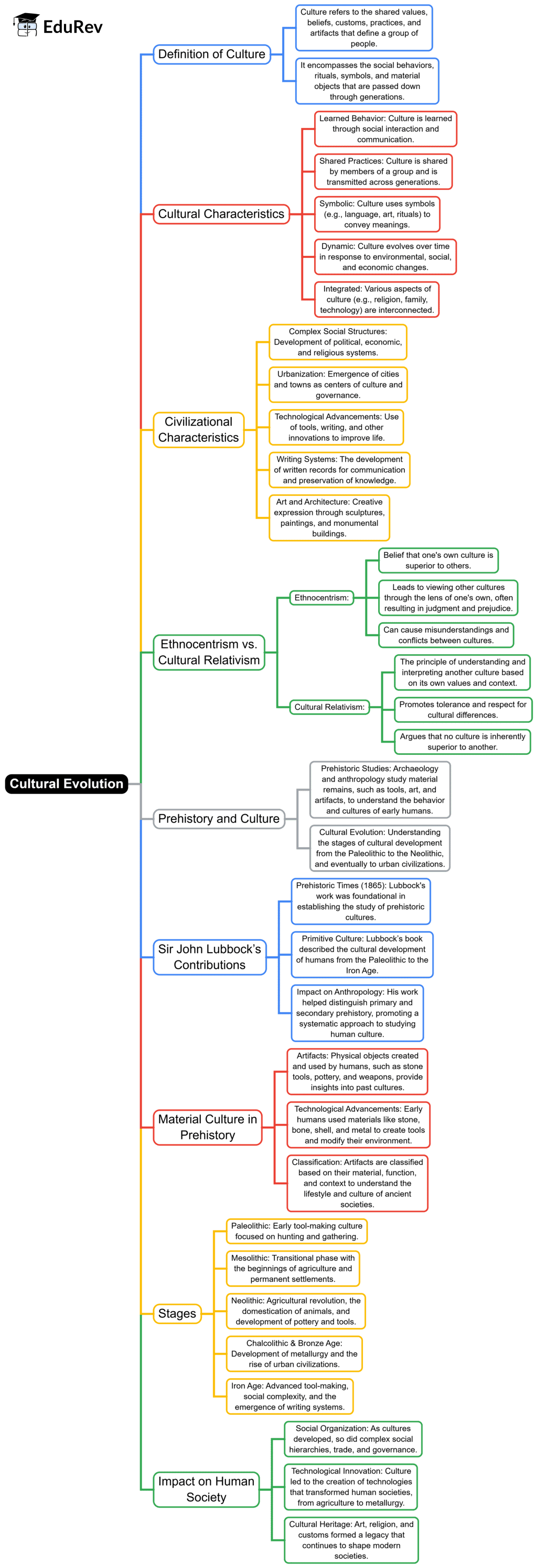UPSC Exam > UPSC Notes > Anthropology Optional for UPSC > Mind Map: Cultural Evolution
Mind Map: Cultural Evolution | Anthropology Optional for UPSC PDF Download

The document Mind Map: Cultural Evolution | Anthropology Optional for UPSC is a part of the UPSC Course Anthropology Optional for UPSC.
All you need of UPSC at this link: UPSC
|
209 videos|299 docs
|
FAQs on Mind Map: Cultural Evolution - Anthropology Optional for UPSC
| 1. What is cultural evolution and why is it important in the context of UPSC preparation? |  |
Ans.Cultural evolution refers to the changes and developments in cultural practices, beliefs, and social norms over time. It is important for UPSC preparation because understanding cultural evolution helps candidates analyze how societies adapt, interact, and evolve, which is crucial for subjects like history, sociology, and anthropology in the exam.
| 2. How does cultural evolution impact societal structures and governance? |  |
Ans.Cultural evolution significantly impacts societal structures and governance by shaping values, norms, and institutions. As cultures evolve, they influence political ideologies, governance systems, and social hierarchies, which are essential topics for UPSC aspirants to understand political dynamics and historical contexts in India and globally.
| 3. Can you explain the role of technology in cultural evolution? |  |
Ans.Technology plays a vital role in cultural evolution by facilitating communication, transportation, and information exchange. This leads to the globalization of cultures and the emergence of new social practices. UPSC candidates should analyze how technological advancements have historically influenced cultural shifts and societal changes.
| 4. What are some key examples of cultural evolution in Indian history? |  |
Ans.Key examples of cultural evolution in Indian history include the transition from ancient Vedic traditions to diverse religious practices, the impact of colonialism on Indian culture, and the globalization effects on contemporary Indian society. These examples are significant for UPSC aspirants to illustrate the dynamic nature of cultural development.
| 5. How can understanding cultural evolution aid in better policy-making? |  |
Ans.Understanding cultural evolution can aid in better policy-making by providing insights into social behaviors, community needs, and historical contexts that shape public preferences. For UPSC aspirants, this knowledge is crucial for formulating effective policies that resonate with diverse cultural backgrounds and promote social harmony.
Related Searches





















